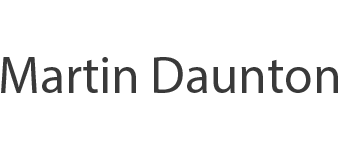About
Current research
My current project is a book for Allen Lane on the economic governance of the world from the World Monetary and Economic Conference of 1933 that met in response to the Great Depression, through the creation of the post-war multilateral institutions to the impact of the financial crisis of 2008 and the threat of trade wars that now faces the world. You can follow my thinking on the audio and video files available on this web site.
My next project is a shorter book on issues of intergenerational equity, dealing with the ways in which we allocate income across our own life time, between currently co-existing generations, and for future generations that are not yet born (and might not be born, depending on our behaviour in response to climate change and the environment). This book links with the research project funded by the Philomathia Foundation. I have delivered three lectures on the theme as Visiting Professor of Economic History at Gresham College in the academic year 2020/21. Details are available at https://www.gresham.ac.uk/series/intergenerational-justice/
I maintain my interest in other areas of social and economic policy on which I have worked in the past, and above all taxation and public finances. My focus is on the nature of the state, its functions and relations with its citizens, the boundaries with the market and other forms of provision, the construction of economic and social knowledge, and the relationships between national and international considerations in shaping policy.
I am also reflecting on issues of contested history and memorialisation that grows out of my current involvement with Historic England and past involvement with the National Maritime Museum. How do we handle contested statutes or histories of slavery or eugenics? An audio file is available on this site of a recent lecture.
Career
I was brought up in South Wales, and attended Barry Grammar School for Boys where Sir John Habakkuk and Sir Keith Thomas were old boys. I read economic history at the University of Nottingham and then studied for my doctorate at the University of Kent under the supervision of Theo Barker. My interests at this time were in the industrial development of South Wales and urban history which I pursued during my first appointment at the University of Durham from 1973 to 1979, where I turned to the comparative history of the South Wales and Great Northern Coalfields and housing policy in the nineteenth and twentieth centuries. I moved to UCL in 1979, leaving in 1997 as Astor Professor of British History. During this period, I developed an interest in the history of the City of London and in the political economy of taxation, as well as embarking on a general overview of British economic history from 1700 to 1951. These projects were completed after I moved to Cambridge in 1997 as Professor of Economic History, where I developed a new interest in the political economy of globalisation since the nineteenth century which formed the basis of my Presidential lectures to the Royal Historical Society and my current book project. These various projects and books have a common theme in understanding the historical background to current political issues.
At Cambridge, I was chair of the Faculty of History as well as twice holding the position of Chair of the School of the Humanities and Social Sciences, and serving as Master of Trinity Hall from 2004 to 2014. During this time, I was also President of the Royal Historical Society, a trustee of the National Maritime Museum, chair of the Fitzwilliam Museum syndicate, and chair of the Leverhulme Trust Academic Awards Committee. I continue to serve as a commissioner of Historic England and chair of its Advisory Committee. Since my retirement from the Professorship in 2015, I have lectured in various universities on my current projects, and some of these talks and seminars are available online. I am currently Visiting Professor at Gresham College.

